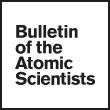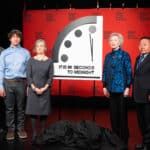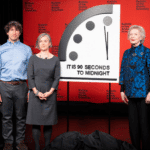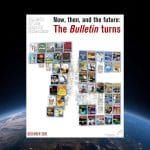Nuclear ban negotiators reject US-British-French boycott logic
By Tim Wright | March 28, 2017
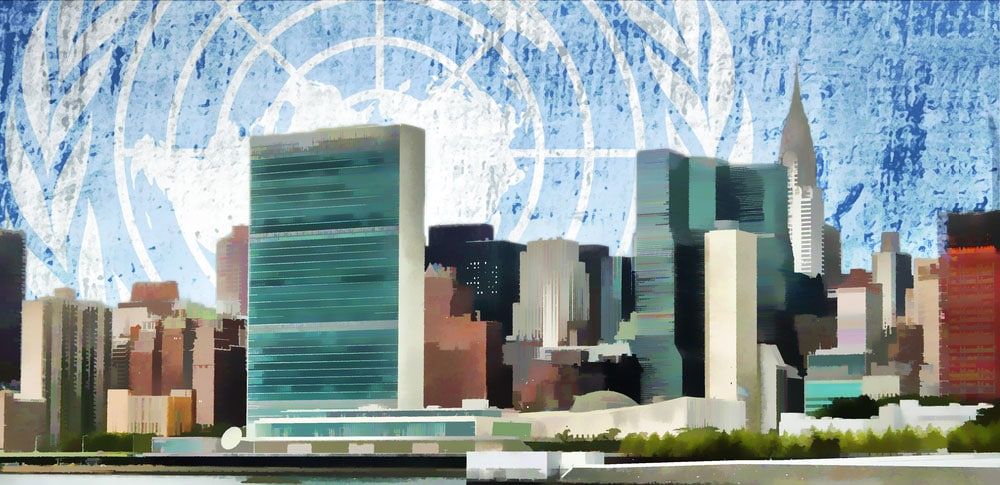
At the United Nations on Monday, a large majority of the world’s governments began work on a treaty to outlaw nuclear weapons, ending more than 20 years of paralysis in multilateral nuclear disarmament efforts. High-level officials delivered impassioned opening statements describing their vision for the treaty and underscoring the urgency and historic significance of the task at hand. Many explained how the new legal instrument—which they hope to conclude as early as July—would help advance the cause of disarmament even without the endorsement of nuclear-armed nations, which remain firmly opposed.
At a press conference outside the UN General Assembly hall, the Trump administration’s ambassador to the United Nations, Nikki Haley, loudly protested the initiative, together with her British and French counterparts. “We would love to have a ban on nuclear weapons,” she told the world’s media. “But in this day and time we can’t honestly say that we can protect our people by allowing the bad actors to have them and those of us that are good—trying to keep peace and safety—not to have them.” North Korea would “be the one cheering and all of us, and the people we represent, would be the ones at risk,” she said.
But it is precisely this kind of flawed logic that the landmark negotiations in New York seek to challenge. Nuclear weapons are not safe in any country’s hands. Rather than making the world safer and more peaceful, they threaten the very survival of humanity. “If nuclear weapons were truly indispensable in providing security, then why should not all states benefit from this advantage?” asked the Austrian delegate, Alexander Marschik. “Let me be very clear,” he went on. “Nobody in this room wants to make any state less secure or any person less safe.” The objective of ban negotiations is to enhance the security of all nations and peoples.
Peter Maurer, the president of the International Committee of the Red Cross, said that the new treaty “will reinforce the stigma” against the use of nuclear weapons, support commitments to reduce the risk of such use, and be “a disincentive for proliferation.” As with chemical and biological weapons, “a clear and unambiguous prohibition” on nuclear weapons will be “the cornerstone of their elimination.” Of course, the agreement will not make these ultimate weapons of mass destruction “immediately disappear,” he said. But it is a necessary and urgent step on the road to their abolition.
Many of the opening statements reflected the humanitarian underpinnings of the negotiating process. Pope Francis, in a message delivered by his envoy, said that the treaty had been “inspired by ethical and moral arguments.” He expressed his hope that the UN process would prove “a decisive step” towards a world without nuclear weapons. Nations must “move beyond” the theory of nuclear deterrence, he urged. The Vatican has recognized that, all too often, governments invoke deterrence as a justification for retaining their nuclear arsenals indefinitely.
In a joint statement, the 14 nations of the Caribbean said that the negotiating conference is faced with “an historic task”—to fill the legal gap in the existing international regime governing nuclear weapons. And the 54 nations of Africa described the negotiations as “a very positive step” towards freeing the world of the nuclear menace. Latin American, Southeast Asian, and Arab states also delivered joint statements endorsing the process and outlining their general views on the treaty.
“The word ‘historic’ is over-used these days,” observed the Irish ambassador, Patricia O’Brien, in characteristically eloquent remarks. “But I believe that this is one of those moments in time when it is truly deserved and warranted. This is a moment when the past demands something of the present. We are here to answer that imperative for action.” It is a pivotal point in our international relations, she said. Nations must work together “to create a new, more stable, more secure and more equal future for all.”
This post is part of Ban Brief,a series of updates on the historic 2017 negotiations to create a treaty banning nuclear weapons. Ban Brief is written by Tim Wright, Asia-Pacific director of the International Campaign to Abolish Nuclear Weapons, and Ray Acheson, director of Reaching Critical Will.
Together, we make the world safer.
The Bulletin elevates expert voices above the noise. But as an independent nonprofit organization, our operations depend on the support of readers like you. Help us continue to deliver quality journalism that holds leaders accountable. Your support of our work at any level is important. In return, we promise our coverage will be understandable, influential, vigilant, solution-oriented, and fair-minded. Together we can make a difference.
Topics: Announcement

